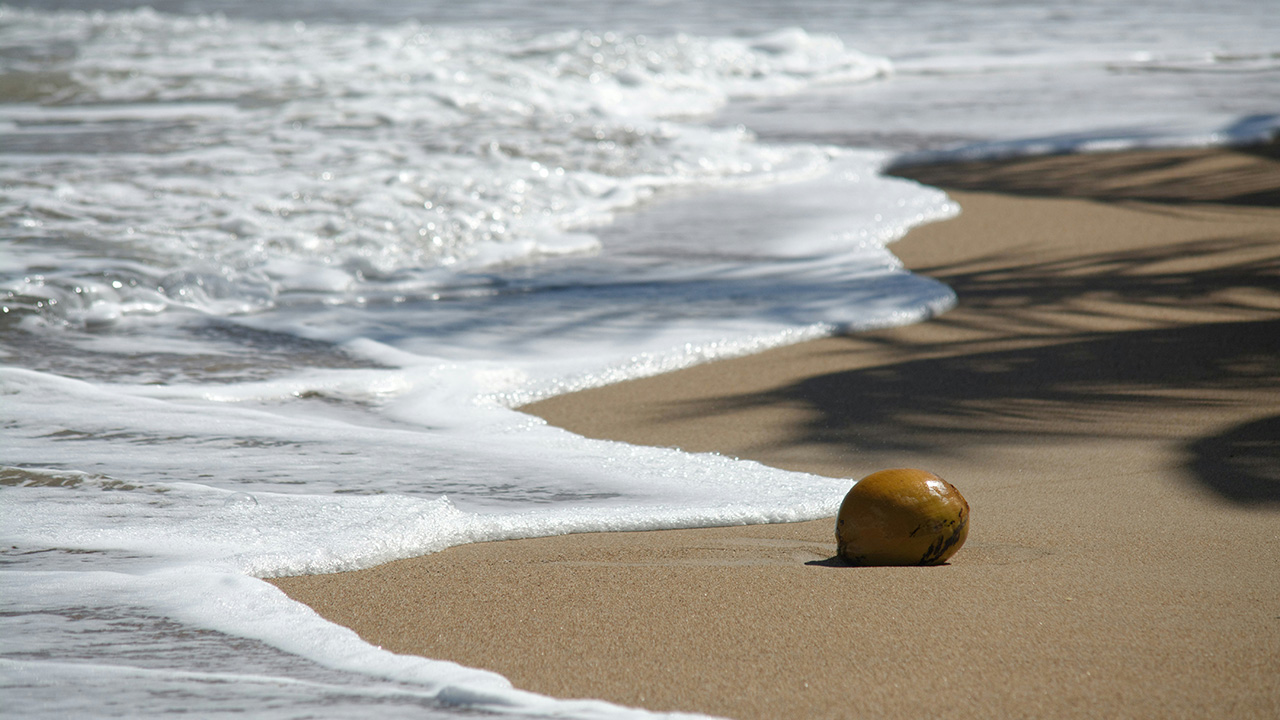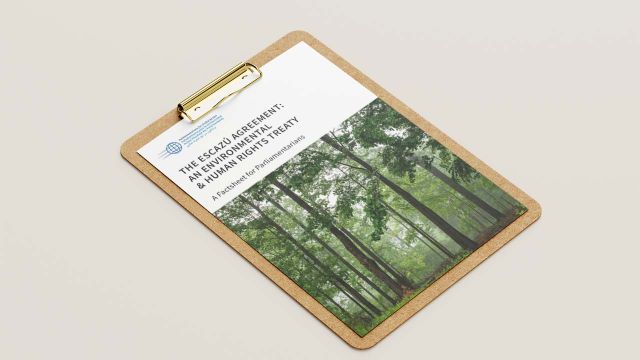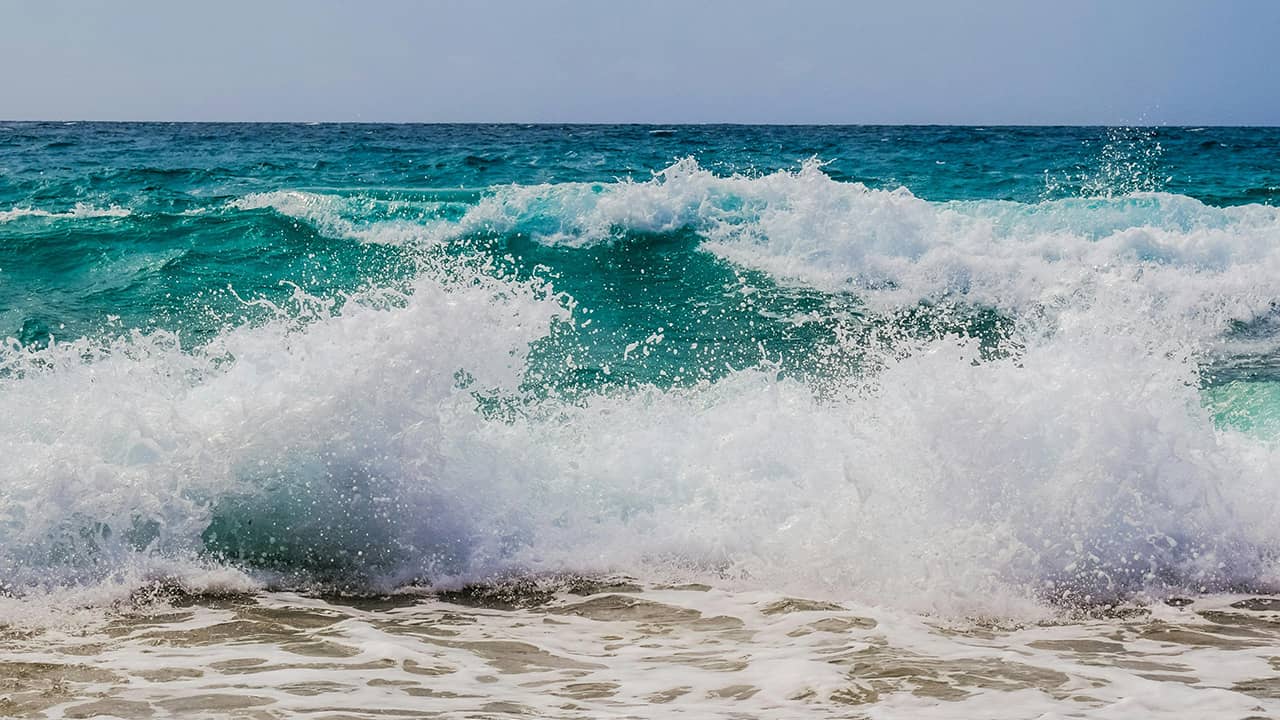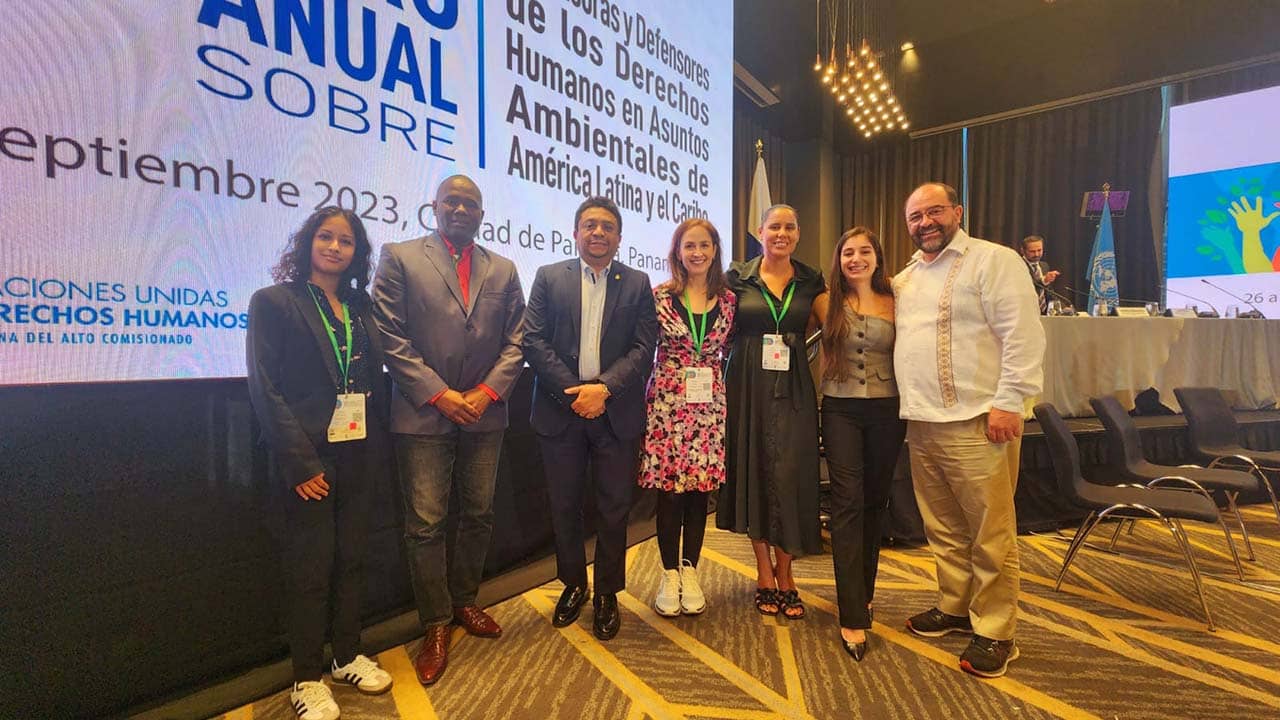
On November 13th, 2024, Parliamentarians for Global Action (PGA), the United Nations Economic Commission for Latin America and the Caribbean (ECLAC), the Caribbean Natural Resources Institute (CANARI), and the University of the West Indies (UWI), jointly hosted the Parliamentary Caucus: The Escazú Agreement as a Tool for Climate Governance and Environmental Democracy in Trinidad and Tobago.
The hybrid, non-partisan Caucus brought together parliamentarians, experts, and civil society to explore the Escazú Agreement as a tool for ensuring the rights to access information, participation and justice in environmental matters, while reinforcing the human right to a healthy environment. Participants engaged in an interactive discussion on the crucial role of parliamentarians and explored innovative strategies to strengthen access rights and protect human rights defenders in environmental matters.
Opening the event, Senator Wade Mark (Trinidad and Tobago), Chair of PGA’s National Group in Trinidad and Tobago, welcomed participants, stressing the importance of parliamentary action and the Escazú Agreement as a vital tool for environmental democracy. Ms. Diane Quarless, Director of ECLAC’s Subregional Headquarters for the Caribbean, and Dr. Bheshem Ramlal, Professor of Geospatial Information Engineering and Dean of the Faculty of Engineering at UWI delivered opening remarks highlighting the significance of multi-stakeholder collaboration to address the escalating environmental crisis and the importance of the Escazú Agreement in this context.
Mr.David Persaud, Director of the Environmental Policy and Planning Division in the Ministry of Planning and Development delivered the keynote address, underscoring the importance of transparency, inclusivity, and accountability in environmental governance, in line with with strong multilateral environmental agreements like Escazú.
Mr. Hayden Romano, Managing Director of the Environmental Management Authority (EMA), outlined the Escazú Agreement’s relevance to Trinidad and Tobago’s existing environmental policies. Ms. Francisca Aguilar, Legal Research Assistant at ECLAC Escazú Agreement Secretariat, and Mr. David Barrio Lamarche, Legal Officer at ECLAC Escazú Agreement Secretariat, elaborated on the Agreement’s capacity to empower civil society, improve transparency, and enable more inclusive environmental decision-making processes.
Senator Anthony Vieira (Trinidad and Tobago) and Ms. Dylis McDonald, Senior Technical Officer at CANARI, moderated a fruiful interactive discussion among all participants on the role of parliamentarians to develop a list of key recommendations for parliamentarians, by parliamentarians. Experts Ms. Danielle Andrade-Goffe, Attorney at Law, Ms. Nicole Leotaud, Elected Representative of the Public for the Escazú Agreement, and Ms. Kate Wilson, Legal Officer in the Department of Sustainable Development of the Government of Saint Lucia, shared strategies for strengthening legal frameworks and ensuring the participation of civil society in environmental decision-making processes. Senator Sophia Frazer-Binns (Jamaica), Shadow Minister of Environment and Ecological Heritage, shared her perspective on Jamaica’s journey with the Escazú Agreement and the importance of sustained cross-party cooperation to prioritize environmental justice.
Ms. Leotaud highlighted the vital role of civil society in the implementation of the Escazú Agreement and emphasized the need for strengthening public participation in environmental decision-making processes, as well as the importance of ensuring that marginalized communities are included in these discussions. Ms. Wilson shared insights on the development of a national roadmap for implementing the Escazú Agreement in Saint Lucia and described the critical role of parliamentarians in shaping this roadmap, ensuring that it reflected the needs of local communities. Ms. Andrade-Goffe reflected on the importance of drafting and reviewing legislation to ensure effective access to information, participation, and justice in environmental matters, emphasizing the need for inclusive and accessible legislative frameworks that protect the rights of environmental defenders.
The interactive discussion concluded with a summary by Sen. Vieira of key recommendations developed during the Caucus, which include actions to strengthen environmental governance and protect human rights defenders, prioritize legal and institutional reforms to enhance accountability and public participation, and urge the government to explore regional instruments such as the Escazú Agreement.
Ms. Anna Cadiz-Hadeed, Acting Executive Director of CANARI, Ms. Artie Dubrie, Coordinator of the Sustainable Development and Disaster Unit at ECLAC Subregional Headquarters for the Caribbean, Dr. Bheshem Ramlal, and Ms. Saarah Monawvil, Director of the Human Rights & Environment Program at PGA, offered closing remarks thanking participants and highlighting the importance of cooperation towards the common goal of a better, more sustainable and inclusive future for the region, where human rights of all people are respected, and nature thrives for present and future generations.




